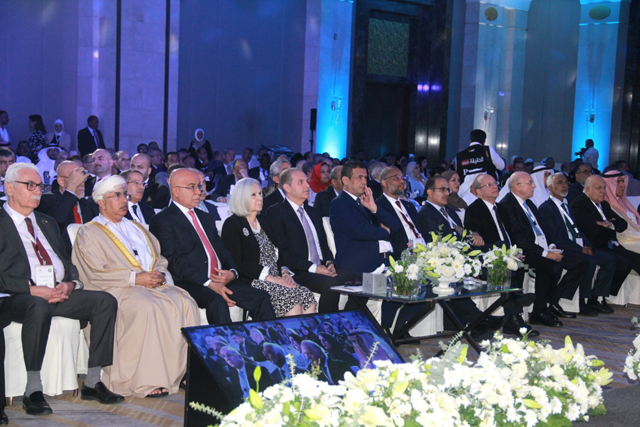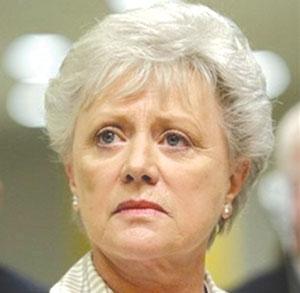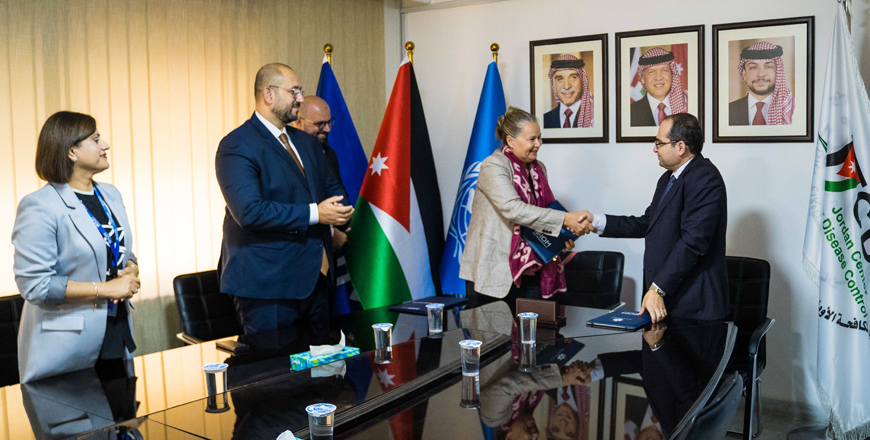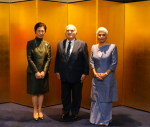You are here
WHO, IOM discuss diaspora engagement in health and health workforce shortages
By JT - Jun 28,2022 - Last updated at Jun 28,2022
CAIRO — The World Health Organisation (WHO) and International Organisation for Migration (IOM) held a regional dialogue on diaspora engagement in health in the Eastern Mediterranean Region.
They highlighted the shortage in the health workforce, especially of the most skilled and qualified health professionals that is being driven by migration in low-income countries in the region as a result of low wages, poor working conditions and lack of professional development opportunities, instability and security concerns in some countries of the Region.
Such shortages, resulting in a significant lack of a well-trained and experienced health workforce, have long been a major development concern, and the migration and mobility of healthcare workers has only been exacerbated by protracted crises in the region, the COVID-19 pandemic and a growing demand for health professionals in developed countries.
This trend is expected to continue, and it is estimated that by 2030 there will be a global shortage of 18 million health workers.
The mass migration of health workers in the Eastern Mediterranean region means that the region can serve as an important source of data and research in order to understand the consequences of the health workforce diaspora and develop solutions to address health workforce challenges.
Carmela Godeau, IOM’s Middle East and North Africa regional director said, “Today, we applaud and honour all the migrant health heroes who have worked around the clock to face the deadly impact of the COVID-19 pandemic and save lives. “
“While we celebrate the heroic efforts and successes achieved by the migrant health workforce, we are alarmed by the impact of the mass migration of healthcare workers from low-income countries in the Region that has created significant shortages in the health workforce.” She added that this was an issue that could be addressed through Skills Mobility Partnerships — an initiative that promotes a sustainable approach to skilled migration and mobility with the idea of building skills both for the benefit of countries of origin and destination.
Dr Ahmed Al Mandhari, WHO regional director for the Eastern Mediterranean, said:“Diaspora health professionals can bring a wealth of skills and experience back from abroad, and mechanisms should be put in place to engage them effectively.
Engagement in the diaspora of healthcare workers needs to be well-coordinated and supported by governments to achieve a sustainable impact.
Clear and robust plans, resilient to any unpredicted changes are needed. These plans can extend into preparedness, response and recovery phases in countries facing emergencies, including the COVID-19 pandemic.
And while health professionals choosing to remain in their countries of origin are eager to support and contribute to the development of the health sector they need to be provided with adequate structures and ongoing professional development opportunities.
We need to protect and invest in our health work force to ensure health for all by all”.
The event “Regional dialogue on diaspora engagement”, was hosted in WHO’s Regional Office for the Eastern Mediterranean and was attended by representatives from relevant ministries and institutions, policy-makers, academia and partner organisations.
Related Articles
AMMAN — Deputising for His Majesty King Abdullah, Minister of Health Firas Hawari on Saturday attended the launch of the First Arab Conferen
AMMAN — HRH Princess Muna, in her capacity as commissioner in the High-Level Commission on Health Employment and Economic Growth, participat
AMMAN — In a significant step towards bolstering healthcare services for migrants and strengthening public health systems, the Jordan Centre

















